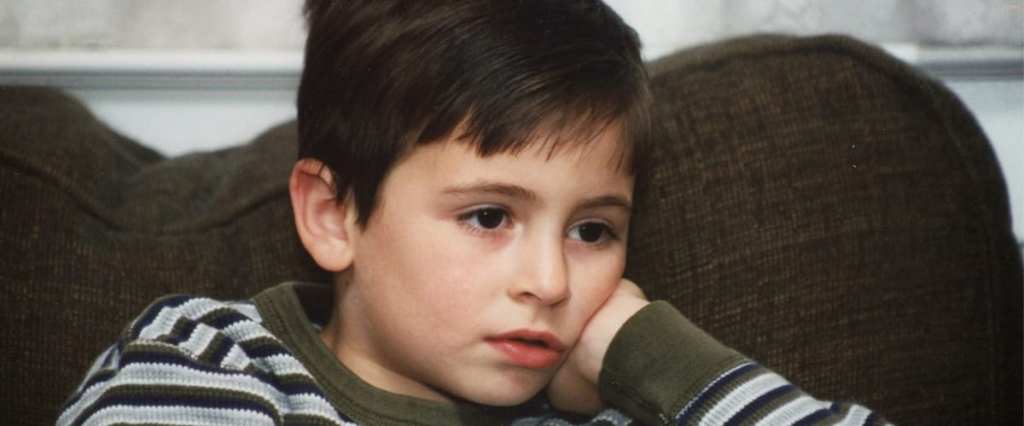In this day and age, it’s all but impossible to keep screens away from your kids. And that’s even though the official recommendation from pediatricians is that kids under two get ZERO screen time (that includes having the television on while they’re in the room, even if it’s tuned to an adult program or a sporting event) and that kids at two should get an hour or less a day.
Sooooooo most of us are going to fail in following those (especially after kid #1). It’s so easy to let my toddler have screen time while I clean the kitchen, fold laundry, tidy the house, or make dinner – if I don’t do something to distract him, I’m just cleaning one thing while he’s destroying another – but it turns out that if you really want to do right by your little ones, you’ll come up with more creative ways to engage them while you’re busy doing other necessary chores.
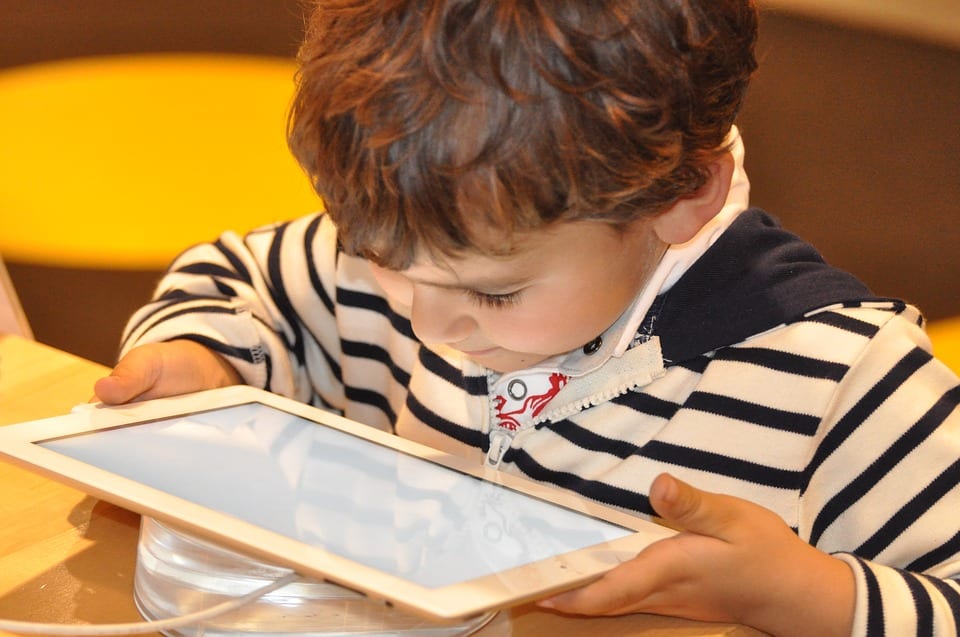
Image Credit: Pixabay
Because screens are basically cocaine and our kids’ brains are incredible susceptible to addiction and addictive behaviors.
Screen time floods kids’ brains with dopamine, the same feel-good chemical released when people do cocaine, and the ensuing feedback loop is increasingly concerning to scientists. Dopamine isn’t addictive in and of itself, but our desire for its release does drive and reinforce habits.
Kids are especially into habits, good and bad, and the research is still out on whether increased dopamine releases in childhood could affect the likelihood of substance abuse down the road. That said, psychologists are fairly sure that dopamine from screens is making it harder for children to control their impulses, increases their desire for instant gratification, and causing kids to “swipe” things like books instead of turning pages.
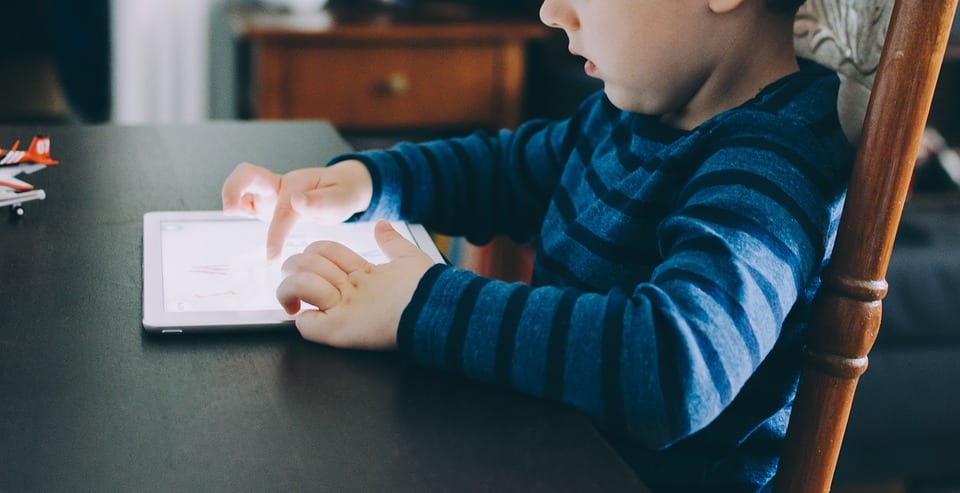
Image Credit: Pixabay
Using screens and other electronics keeps kids in a chronic state of hyper-arousal, often leaving them agitated and exhausted at the same time. The state makes it hard for kids to retain information, perform in school, interact appropriately with peers, and regulate their own emotions.
Psychologist Doreen Dodgen-Magee explains that it’s not only the fact that parts of the brain are overstimulated, but that other important areas of the brain are being underused at the same time.
“The brain works on a use it or lose it principle. Unless we are intentionally creating opportunities for focus, for delay of gratification, and for boredom, the portions of the brain that regulate these functions have the potential to show less robust, and possibly even diminished, function.”
The feedback loop works like this: you watch Paw Patrol, dopamine is released and tells your brain that watching Paw Patrol is a reward and it feels good, so you should do more of it. And as you continue, you increase the demand for more, and more, and more.
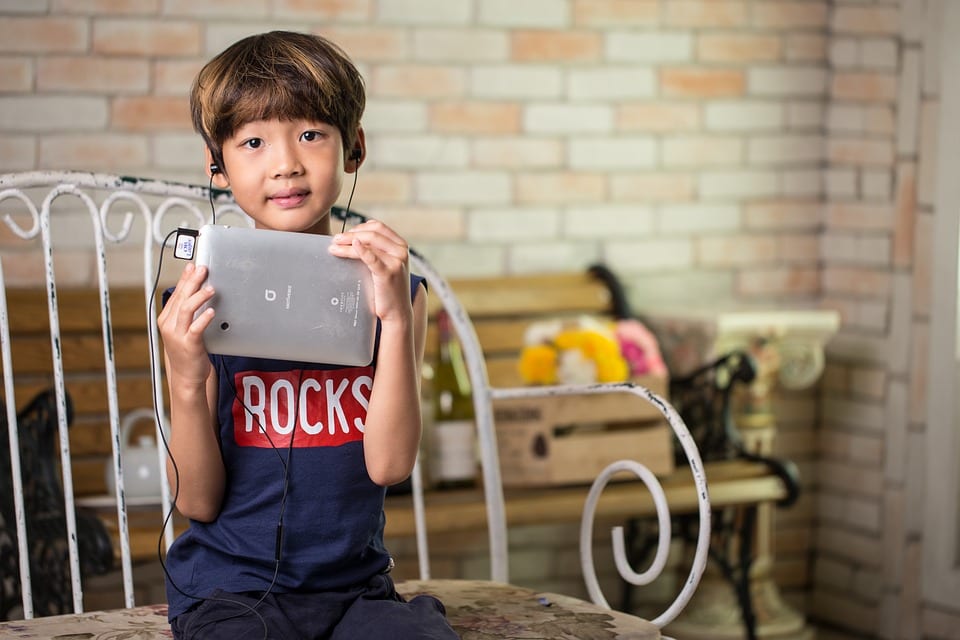
Image Credit: Pixabay
Studies show that children with a certain dopamine receptor are more likely to struggle with ADHD, aggression, and other behavioral problems; the flood of dopamine strains their underdeveloped reward system, making it hard for them to experience joy from things that are not screens, says family therapist Katie Ziskind.
“Screen time leads to dopamine release. This means that the more screen time, the more addicted to screen time your child will become. Create and teach healthy boundaries around screen time. Do not use it as a reward.”
If things in your house are already out of hand, a digital detox may be in order. If not, make sure to set limits for yourself and for your kids, and stick to them even if it makes your life more difficult in the moment.
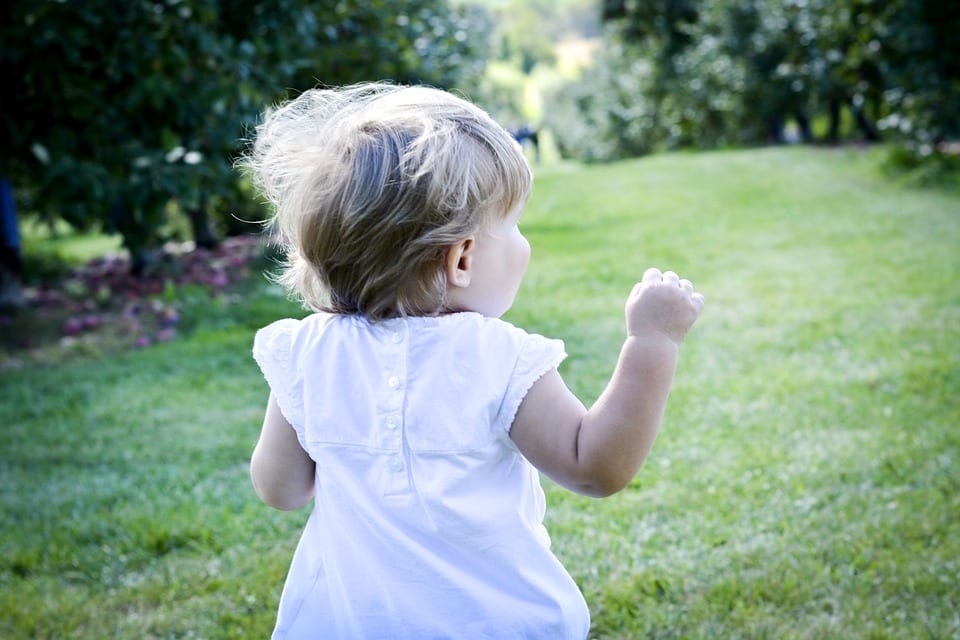
Image Credit: Pixabay
Prioritize outdoor play, interacting with nature, and one-on-one time with peers, parents, or other adults.
“Our routines with our devices make it so our children are overly comfortable with overstimulation and have underdeveloped important skills that will make them successful in the long run. But it’s always easier to establish healthy norms than to break bad habits.”
So set the boundaries early and stick to them. You’ll have less battles in the end, even if it is harder to make dinner. Your kids’ brain is worth it!
For the record, I’m also talking to myself. We can do this!

